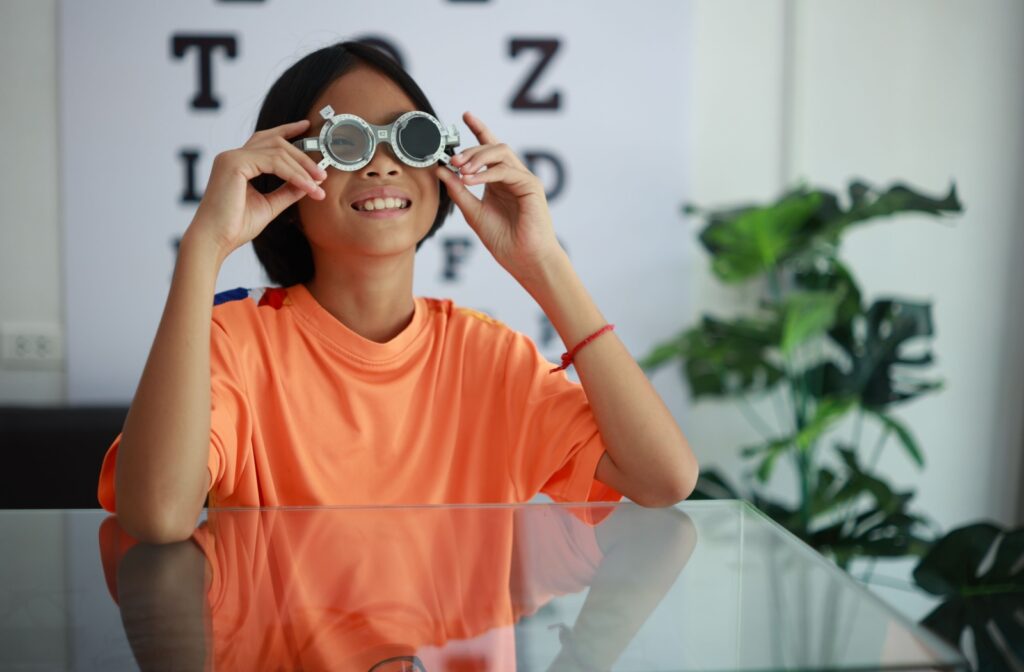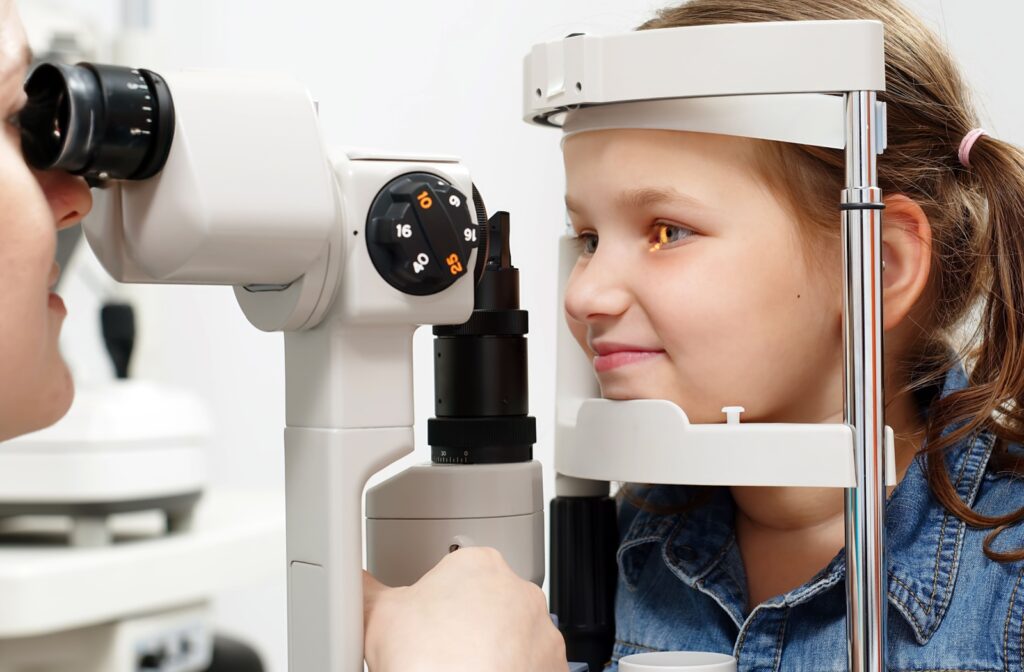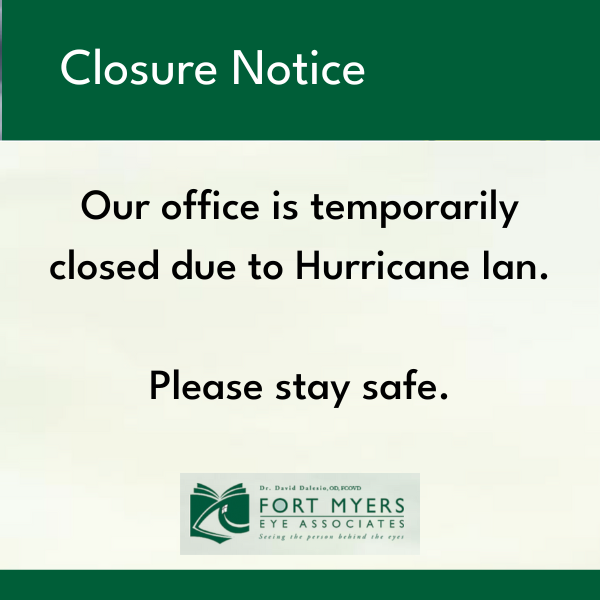Parents never think twice about investing in braces to perfect their child’s smile—but what about protecting something even more crucial, like their vision? Progressive myopia, or worsening nearsightedness, is becoming increasingly common among children, and it’s more than just needing glasses. Left unmanaged, it can lead to serious complications like retinal detachment or glaucoma later in life.
Good vision isn’t just about seeing clearly—it’s about thriving in school, excelling in sports, and confidently navigating the world. Yet, many families overlook the importance of high-quality eye care until it’s too late. With today’s advanced treatments and early intervention strategies, parents have the power to make a lifelong impact on their child’s health and well-being.
Here are some tips for managing progressive myopia and ensuring your child’s healthy vision:
- Regular eye exams
- Corrective Lenses
- Orthokeratology (Ortho-K)
- Soft Single-Use Myopia Management Contact Lenses
- Low-dose Atropine
- Outdoor time and reduced screen time
- Proper nutrition and supplements
Regular Eye Exams
Just like annual physicals and dental check-ups, regular eye exams are crucial for monitoring your child’s vision and overall eye health. Most eye care professionals recommend that children have their first comprehensive eye exam at 6 months old to establish a baseline, followed by another exam at age 3 to ensure proper visual development, and then again before starting school. Continuing with yearly exams thereafter is essential for early detection of any issues.
During these exams, the eye doctor will assess not only your child’s visual acuity but also check for any signs of progressive myopia or other vision problems. They will perform various tests to evaluate how well your child can see at different distances and determine the health of their eyes. Early detection is key in managing progressive myopia and preventing it from worsening, as timely intervention can lead to better outcomes in vision correction.
Corrective Lenses
If your child is diagnosed with myopia, they will likely need corrective lenses to help them see clearly at a distance. These lenses can come in the form of glasses, which are convenient for daily wear and easy to adjust, or contact lenses, which some children may prefer for sports and other activities.
It’s important to work closely with your eye care professional to find the best fit and prescription that suits your child’s specific needs and lifestyle. Regularly updating their prescription as needed is also crucial in managing progressive myopia, as changes in vision can occur rapidly during childhood and adolescence.

Orthokeratology (Ortho-K)
Orthokeratology, or Ortho-K, is an innovative non-surgical treatment option for managing progressive myopia in children. This approach involves wearing specialized contact lenses overnight that gently reshape the cornea while sleeping, allowing for clear vision during the day without the need for glasses or conventional contacts.
The lenses are designed to provide temporary vision correction, and many parents find it to be a popular option since it can significantly slow the progression of myopia in children. This method not only enhances convenience for active lifestyles but also promotes better eye health.
Soft Single-Use Myopia Management Contact Lenses
Soft, single-use myopia control contact lenses, like MiSight and NaturalVue, are a convenient and effective option for managing progressive myopia.
These lenses are designed to correct refractive errors while providing added benefits for myopia control. They incorporate advanced designs, such as peripheral defocus or multifocal optics, which help slow down the progression of myopia by influencing how light focuses on the retina.
Both MiSight and NaturalVue lenses provide a convenient, non-invasive solution for managing progressive myopia, are suitable for children as young as 8, and are particularly beneficial for active lifestyles.
Low-Dose Atropine
Another effective non-surgical treatment option for progressive myopia is low-dose atropine eye drops, which are applied daily. These drops have been extensively studied and proven to significantly slow the progression of myopia in children.
They work by temporarily paralyzing the ciliary muscles in the eyes that control nearsightedness, thus preventing further elongation of the eyeball, which is the primary cause of worsening myopia. With proper guidance from an eye care professional, parents can effectively incorporate this treatment into their child’s vision management plan.
Outdoor Time & Reduced Screen Time
Research studies have shown that spending more time outdoors and less time on screens can help prevent or slow down the progression of myopia in children. Natural light exposure and the act of focusing on objects at a distance can help reduce the strain on the eyes that is often caused by prolonged near work, such as using electronic devices or reading for extended periods.
Encouraging outdoor play and activities can be a fun and effective strategy for eye health, promoting not only better vision but also overall physical and mental well-being for children. Whether it’s playing sports, exploring nature, or simply enjoying fresh air, these habits can contribute significantly to maintaining a healthy vision.
Proper Nutrition & Supplements
Maintaining a healthy and balanced diet, rich in vitamins and minerals, can also play a role in managing progressive myopia. Nutrients such as vitamin D, zinc, and omega-3 fatty acids have been linked to eye health and may help slow the progression of myopia.
In addition to proper nutrition, there are also specific supplements that have been shown to be beneficial for managing myopia. Lutein and zeaxanthin, which are found in leafy green vegetables, have been linked to better visual outcomes in children with myopia. It is important to consult with your child’s doctor before starting any new supplement regimen.
Vision is the Foundation of a Bright Future
Your child’s vision shapes how they see the world—literally and figuratively. Progressive myopia is more than just an inconvenience; it’s a condition that can affect their academic performance, social development, and overall quality of life. By prioritizing high-quality eye care and addressing myopia early, you’re not just improving their sight, you’re investing in their future success and well-being.
Don’t wait to take action. Schedule a comprehensive eye exam with Fort Myers Eye Associates today and give your child the clarity and confidence they deserve. Remember, prevention is key when it comes to managing progressive myopia in children.





